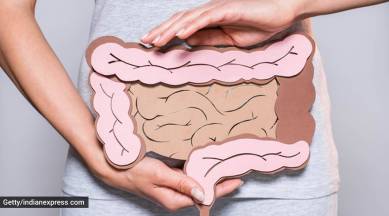📣 For more lifestyle news, click here to join our WhatsApp Channel and also follow us on Instagram
World Digestive Health Day 2023: Vital signs of an ailing gut
To nip the potential digestive disorders in the bud, it's crucial to pay attention to early signs of compromised gut health

It is rightly said, ‘A healthy gut is a healthy you.’ But, in our daily pursuit of wellness, we often overlook a crucial aspect of our health: the gut. The human digestive system is a complex network of organs and microbes that play an essential role in our overall well-being. As such, it’s time we recognise the profound impact of a healthy gut on our physical and mental health. For the same, every year on May 29, people all over the world come together to observe World Digestive Health Day (WDHD).
This global observance aims to raise awareness about digestive disorders and emphasise the significance of timely diagnosis and treatment for gastrointestinal diseases. To nip these potential diseases in the bud, it’s crucial to pay attention to early signs of compromised gut health. “It’s been stated that the stomach is the body’s second brain, and having an unhealthy gut can have a negative impact on the rest of your body. To understand why this occurs, it is necessary to first understand how a fully functioning gut should work,” Dr Aniket Mule, consultant internal medicine, Wockhardt Hospitals, Mira Road said.
monthly limit of free stories.
with an Express account.
The expert explained that a healthy gut is when you have one to two well-formed and easy-to-pass bowel movements every day. “Symptoms such as diarrhoea, constipation, and loose stools should be absent. Other markers of a healthy gut include the absence of rectal symptoms such as haemorrhoids as well as stomach symptoms such as gas, bloating, and discomfort,” Dr Mule said.
He further explained that one is less susceptive to skin diseases, autoimmune illnesses, inflammatory reactions, and other health issues when your gut is healthy. “An unhealthy stomach has also been linked to skin disorders such as acne, psoriasis, and eczema, according to research. Another study published in Frontiers in Microbiology in July 2018 discovered that an unhealthy gut can play a complicated role in allergic disorders such as lung allergies, food allergies, and skin allergies. As a result, the gut microbiota may have an impact on nutrition, skin, and even the lungs.”
Agreeing, Dr Vijay Kumar Gurjar, Senior Consultant and HOD, Internal Medicine, Primus Super Speciality Hospital said that frequent bloating, gas, or abdominal pain are some prominent warning signs of an unhealthy gut. “Constipation or diarrhoea that lasts longer than a few days might potentially be warning indications of a problem. Fatigue, decreased appetite, and unexplained weight loss or gain may be signs of underlying digestive problems.”
Dr Gurjar suggested paying attention to symptoms like persistent heartburn, acid reflux, or blood in the stool. “A healthcare expert should be seen if you consistently encounter any of these symptoms in order to receive an accurate diagnosis and sound advice,” he said.
How to keep digestive health in check?
Here are some essential tips to follow, as suggested by Dr Adi Rakesh Kumar, Consultant Gastroenterologist, Therapeutic Endoscopist and Endosonologist, Yashoda Hospitals, Hyderabad.
*Eat a balanced diet: Consume a diet rich in fibre, fruits, vegetables, whole grains, lean proteins, and healthy fats. This helps promote regular bowel movement, supports a diverse gut microbiota, and provides essential nutrients for digestive health.
*Stay hydrated
*Have probiotics and fermented foods: Probiotics are beneficial bacteria that support a healthy gut. Include foods like yoghurt and other fermented foods in your diet.
*Limit processed foods and sugars
*Control portion sizes: Eat smaller, more frequent meals and listen to your body’s hunger and fullness cues.
*Chew food thoroughly
*Manage stress: Stress can impact digestion. Practice stress management techniques such as meditation, deep breathing exercises, regular physical activity, and engaging in activities you enjoy.
*Exercise regularly
*Limit alcohol and caffeine
*Avoid smoking: Smoking can contribute to digestive problems, including an increased risk of acid reflux
*Get sufficient sleep: Sleep deprivation can negatively impact digestive health.
*Be mindful of medications: All medications are to be taken under medical supervision
*Practise good food safety: Wash your hands thoroughly, cook food to appropriate temperatures, and store food properly.
📣 For more lifestyle news, follow us on Instagram | Twitter | Facebook and don’t miss out on the latest updates!
📣 For more lifestyle news, click here to join our WhatsApp Channel and also follow us on Instagram